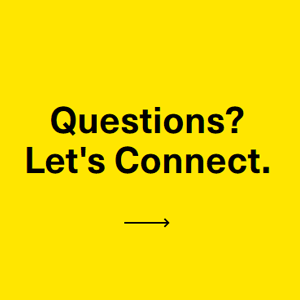Starting June 1st, 2023, the WhatsApp Business Platform will deploy a new use case-based pricing model. This guide explains these upcoming changes as well as what to expect from the WhatsApp Business API with Syniverse.
3 Changes Coming to WhatsApp Business Messaging
If you use WhatsApp Business Messaging to engage your customers, here are three major changes Meta is rolling out in 2023 that you need to know about:
1. New Conversation Categories

Currently, there are two types of WhatsApp Business Platform conversations: user-initiated and business-initiated. On June 1st, 2023, this will change to become four conversation categories based on the use case: Authentication, Marketing, Utility, and Service conversations.
The business-initiated conversation category will be split into the following three categories:
- Authentication: This includes any form of customer identity authentication, such as one-time passcodes or purchase verification.
- Marketing: Promotional messages, including special offers, welcoming/closing messages, invitations, recommendations, and requests to respond. Any business conversations that do not fall under the authentication or utility categories will fall under the marketing category. Any template that has a mix of utility and marketing content will be classified as a marketing template.
- Utility: Customer-requested updates, such as shipping notifications and recurring billing reminders, and confirming or suspending a transaction.
All current user-initiated conversations will be renamed to Service conversations. Service conversations cover interactions that involve customer inquiries.
2. Pricing Changes
Business-initiated conversations pass-through fees will be based on the use case. For example, Authentication conversations will have a different pass-through fee than Marketing conversations. If multiple conversation templates are delivered within the same open conversation, separate charges will be initiated for those conversations.
Businesses will also no longer have access to 1,000 free business-initiated conversations (Authentication, Utility, and Marketing conversations as of June 1st, 2023) each month. Businesses will still be able to send 1,000 free user-initiated conversations (Service conversations as of June 1st, 2023) each month.
For a more detailed breakdown of these new WhatsApp conversation categories and their pricing, see the chart below:

3. Extension of Free Entry Point Conversations
When customers message businesses by clicking buttons on WhatsApp or Facebook ads, these user-initiated conversations are not charged by WhatsApp for a set period of time. Prior to March 1, 2023, the window for free entry point conversations was 24 hours. As of March 1, 2023, Meta has extended this window to 72 hours. Any future conversations that were not initiated from a free entry point will still be billable.
What Stays the Same?
While there are many big changes coming to WhatsApp’s pricing model this year, the following aspects will remain the same:
- All conversations under the new template categories (Service, Authentication, Utility, and Marketing) will have the same 24-hour duration.
- Businesses will still be able to try out the WhatsApp Business Platform with 1,000 free service (aka, user-initiated) conversations each month.
- The pass-through rate will be based on where the destination device is registered. For example, sending a utility conversation template to a mobile device with a +1 country code will have a different pass-through rate from a device with a +44 country code, regardless of where the devices physically are.
How Will this Impact You Financially?
After June 1st, 2023, the invoices you receive from WhatsApp may start to look different. The new rate card published by Meta indicates an increased pass-through rate for Service, Utility, and Marketing conversations. Authentication rate will be released by Meta before June 1st, 2023.
In addition to WhatsApp pass-through fees, as a customer, you are likely billed a separate charge by your service provider. Be sure to check with your WhatsApp service partner and be aware of any changes to their pricing structure to fully understand the financial impact the new WhatsApp pricing will have on your business.
Prepare Your Business for Upcoming WhatsApp Pricing Changes
While this new pricing model will require some adjustment from both partners and customers, these WhatsApp changes will ultimately benefit business customers. Use case based tracking and reporting on the types of conversations will help businesses better understand the effectiveness and efficiency of their WhatsApp business messaging.
It is up to your service partner to embrace this pricing model change with a deep understanding of your business needs and message history, and ultimately leverage this new structure (tracking and reporting) to help you maximize your ROI while providing relevant communications that your customers love.
If you have any questions about these new WhatsApp changes from Meta, it’s best to start a conversation with your partner now, before June 2023 rolls around, to understand how your legacy templates will be migrated and what the financial impact on your business will be.
Syniverse is a Meta recognized BSP for WhatsApp and we are here to answer any questions as well as to support you with your business messaging, you can contact us here.
With a career spanning marketing, academia and product management, Jenna is passionate about combining user insights with technology to solve problems. Her track record of design thinking, and data-driven strategies have enabled her to develop successful products & improve usability as well as business operations – leading to bottom line results! Relationship building is one of her strengths: collaborating across teams for success while ensuring stakeholder alignment; growing partnerships worldwide by teaching courses & developing relationships with key organizations in the SaaS sector; negotiating commercial agreements – all contribute towards optimizing operations from both financial and product perspectives.





